Dropping out of Socialism
Dropping out of Socialism
The Creation of Alternative Spheres in the Soviet Bloc
Edited by
Juliane Frst and Josie McLellan
LEXINGTON BOOKS
Lanham Boulder New York London
Published by Lexington Books
An imprint of The Rowman & Littlefield Publishing Group, Inc.
4501 Forbes Boulevard, Suite 200, Lanham, Maryland 20706
www.rowman.com
Unit A, Whitacre Mews, 26-34 Stannary Street, London SE11 4AB
Copyright 2017 by Lexington Books
All rights reserved . No part of this book may be reproduced in any form or by any electronic or mechanical means, including information storage and retrieval systems, without written permission from the publisher, except by a reviewer who may quote passages in a review.
British Library Cataloguing in Publication Information Available
Library of Congress Cataloging-in-Publication Data
Names: Frst, Juliane, 1973- editor. | McLellan, Josie, editor.
Title: Dropping out of socialism : the creation of alternative spheres in the Soviet bloc / edited by Juliane Frst and Josie McLellan.
Description: Lanham : Lexington Books, [2016] | Includes bibliographical references and index.
Identifiers: LCCN 2016037411 (print) | LCCN 2016051561 (ebook) (print) | LCCN 2016051561 (ebook) | ISBN 9781498525145 (cloth : alk. paper) | ISBN 9781498525152 (Electronic)
Subjects: LCSH: Europe, EasternSocial conditions. | Communism and individualismEurope, Eastern. | Communism and libertyEurope, Eastern. | Post-communismEurope, Eastern.
Classification: LCC HN380.7.A8 D76 2016 (print) | LCC HN380.7.A8 (ebook) | DDC 306.09437dc23
LC record available at https://lccn.loc.gov/2016037411
 The paper used in this publication meets the minimum requirements of American National Standard for Information SciencesPermanence of Paper for Printed Library Materials, ANSI/NISO Z39.48-1992.
The paper used in this publication meets the minimum requirements of American National Standard for Information SciencesPermanence of Paper for Printed Library Materials, ANSI/NISO Z39.48-1992.
Printed in the United States of America
Contents
Juliane Frst
Irina Costache
Terje Toomistu
Maria-Alina Asavei
Madigan Andrea Fichter
Josephine von Zitzewitz
Irina Gordeeva
Patryk Wasiak
Juliane Frst
Jeff Hayton
Evgenyi Kazakov [Ewgeniy Kasakow]
Anna Kan
Peter Angus Mitchell
Joachim C. Hberlen
The editors would like to thank the UK Arts and Humanities Research Board (AHRC) for their generous support of the project Dropping out of Socialism: The Creation of Alternative Sphere in the Soviet Bloc (grant number AH/I002502/1) with a generous Early Career Research Grant, which ran at the University of Bristol from 2011 to 2015. The editors would further like to thank the School of Humanities and Faculty of Arts at the University of Bristol, which hosted the project. We are particularly grateful to Sam Barlow of the Bristol Institute for Research in the Humanities and Arts (BIRTHA), who supported the workshop Dropping out of Socialism, held 68 June 2014. Many of our colleagues in Bristol and elsewhere have offered support and advice at various stages of the project and advanced our thinking with their own research. We are also very grateful to our copy editor Kim Friedlander for getting articles written by people with so many different mother tongues into shape, Brian Hill, for his enthusiasm and support for the book and Eric Kuntzman for patience and help in the publishing process.
Juliane Frst
What does it mean to drop out? How does one drop out? Dropping out from what? Google only has two answers to such questions. Either the researcher is referred to Timothy Leary and the many pages dedicated to his famous LSD-hailing mantra of dropping out, turning on and tuning in. Or paradoxically, the reader is directed to the vast debate concerning school drop-outs and the social and societal problems their existence poses. The irony is, of course, that the latter might very well be adherents of the former. What is utopia to some is a failed existence to others. Clearly, visions of what dropping out entails and how to evaluate it differ significantly. Salvation for one is condemnation for the other. Finding oneself can also mean being lost. Cutting ties can be liberating, or the first step to a future without choice.
As different as these and other interpretations of dropping out are, they have one major assumption in common. Almost all existing discussions surrounding dropping out are conducted with a highly developed capitalist Western world in mind. Dropping out is a luxury that can only take place against a backdrop of societal wealth. It is assumed that only in modern, liberal societies do people have the choice to drop out and reject what so many in the developing world are striving for: wealth, career, and success. Both poor people and people living in authoritarian regimes are assumed not to enjoy the freedom to exit. What do you rebel against, if you are busy feeding your family? Who would risk everything to live a life which is not only materially uncomfortable, but highly dangerous in an authoritarian or impoverished context?
While the question of dropping out in the developing, global South is the subject of a separate book, this collected volume sheds light on whether, where, and how people dropped out from the socialist East. Our contributors put an end to the assumption that it was only possible to drop out out of Many aspects of cultural and social life in the Western postwar years also left their marks in the East: the global counterculture of the 1960s, the turn toward Eastern esotericism, the anticapitalist boom of punk culture, changes in youth culture caused by technological innovation, just to name a few. Of course, communist leaders did not look benevolently upon such global phenomena, which they resolutely interpreted as Western and bourgeois. As such these countercultures were both persecuted and denied. They did not fit into the socialist canon and hence, so far as the official narrative was concerned, they did not exist.
Yet even at the height of the Cold War, Western observers, of and in, Eastern Europe were highly aware of such phenomena and the drop-out cultures they spawned. International reporters and the staff of Radio Free Europe were anxious to present them as harbingers of change and communist decline. Ironically, the end of the Cold War also meant the end of Western interest in Eastern European nonconformists. Those who lived willfully outside the mainstream have remained hidden. Most historical and political interest has focused on either big politics or ordinary life, ignoring the marginal sections of society, and in particular, those who made a virtue of being abnormal. For a long time, while communist censorship existed, only Eastern European insiders knew about drop-outs, because it was impossible to gather information on them except by direct contact or word of mouth. Now their tales are freely availableas oral history, written memoirs, or through state sources. But for many scholars, the drop-outs exceptionality and non-representativeness makes them unfit subjects of sustained attention.
Maybe it is not surprising that, just as many of the former socialist Eastern European states are leaving the democratic path, interest has (re-)awoken in socialist subjects who did not conform but were not overt dissidents, who lived outside the norm yet possessed their own normative frameworks, and who rejected socialist norms but also perpetuated them by accepting and fostering their social exclusion. In recent years memoirs, newly available documents, and oral histories have started to shed light on this long-neglected topic of willful marginals under socialism. It turns out that many questions posed by the stories of hippies, punks, yogis, hackers, and nonconformists of all shapes are the same as those that have been asked about their Western peers. What does it really mean to drop out? Is dropping out an action that one does or one that is done to one? Is it possible to drop out completely? Is dropping out indeed the best term to describe the relationship of alternative communities to hegemonic political and cultural power?
Next page
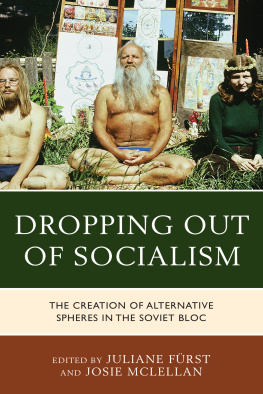

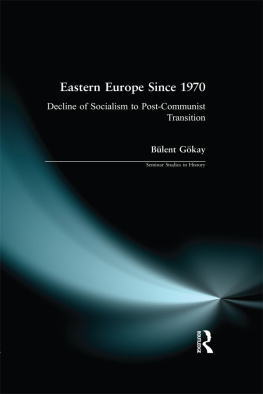
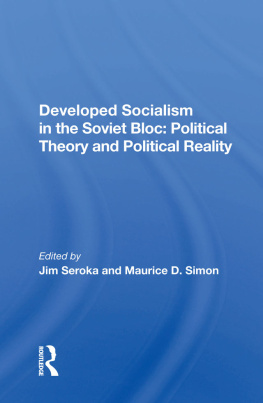


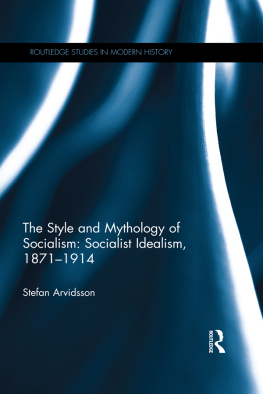
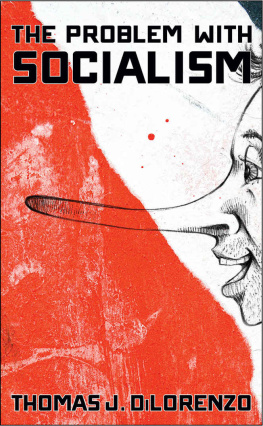

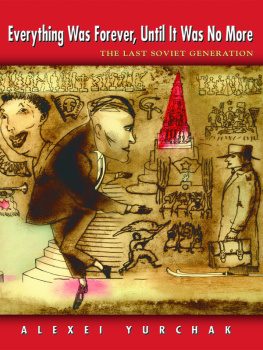
 The paper used in this publication meets the minimum requirements of American National Standard for Information SciencesPermanence of Paper for Printed Library Materials, ANSI/NISO Z39.48-1992.
The paper used in this publication meets the minimum requirements of American National Standard for Information SciencesPermanence of Paper for Printed Library Materials, ANSI/NISO Z39.48-1992.